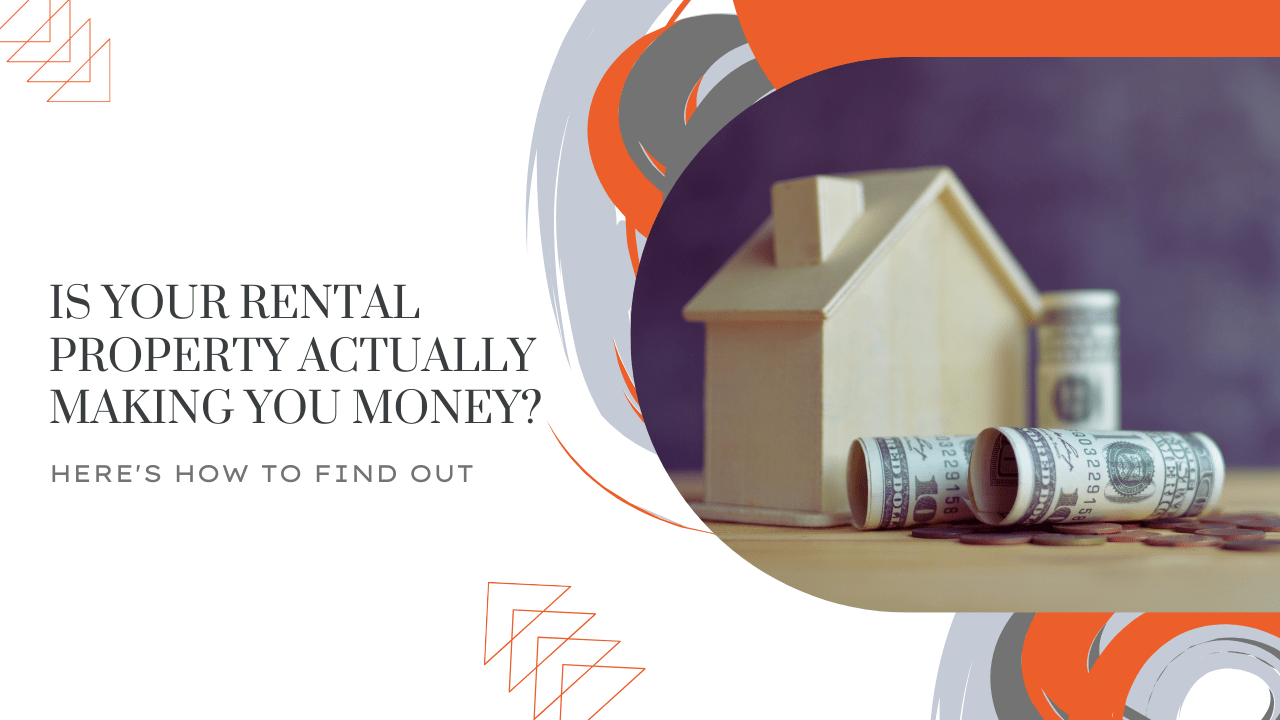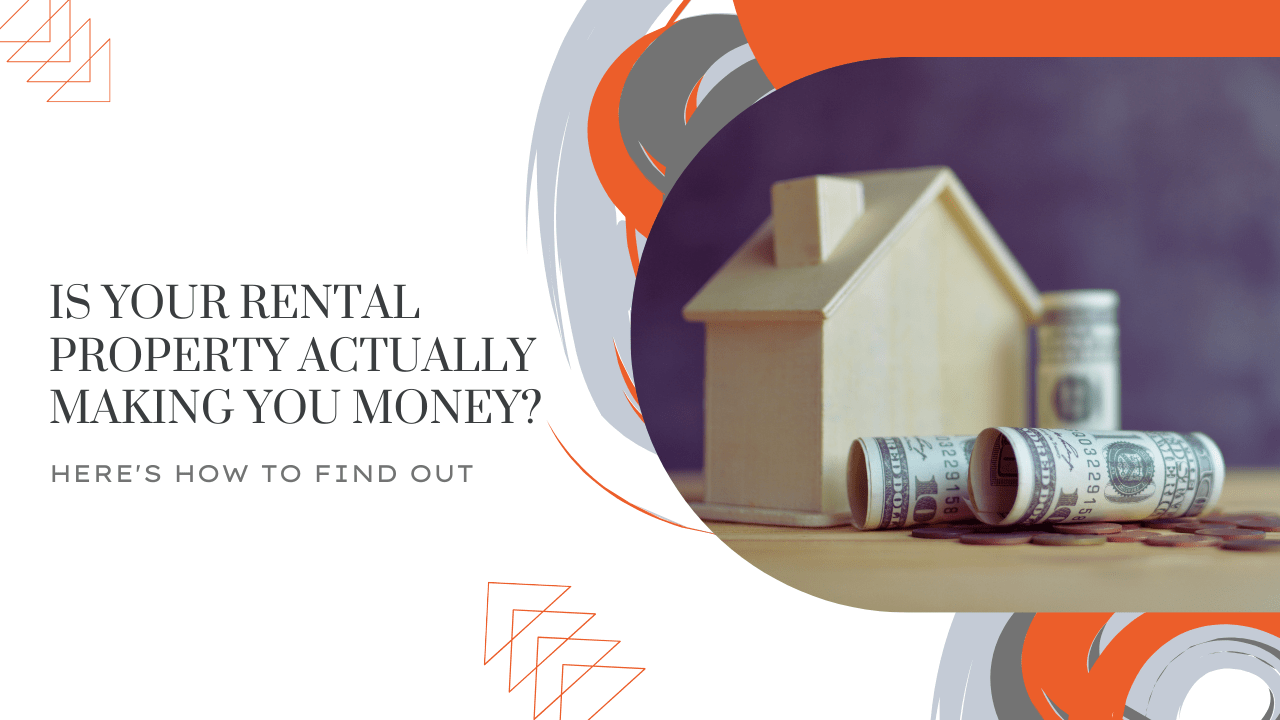
It’s easy to assume your Atlanta rental property is making you money when a tenant is in place and rent is coming in.
But is that property really profitable?
Understanding whether your rental property is financially successful requires more than just tracking and collecting rent payments. For real estate investors, assessing rental property profitability is an important part of determining the true value of rental investments.
As professional property managers in Atlanta, we have a deep understanding of what makes a rental property earn money, and that’s why we always encourage investors to partner with a management company before they buy. You can get an idea of how much rent you’ll earn, what your expenses are likely to be, and how long it will take you to find and place a qualified tenant.
Today, we’re providing some advice and support around how to tell if the investment property you’re currently renting out is making you any money. We’ll guide you through the essential metrics and insights needed to evaluate your property's performance effectively, and we’ll even offer a few strategies that are easily actionable to help you increase what you’re earning on your property.
Understanding Rental Property Profitability Matters
Real estate investment can be a lucrative venture, but it's critical to have a clear understanding of your property's financial health. Knowing your property's profitability helps you to identify underperforming investments and make some changes to address the insufficiencies. You’ll be able to decide how to structure future investments and decide whether your investment goals need some tweaking. Understanding profitability (or lack thereof) also helps you to optimize income and minimize expenses by getting a look at the current state of your investment. If it needs to do better, you can make those plans. If it seems that you’re better off selling that investment and cashing out, you can make those plans, too.
Every Investor Has a Different Definition of Success
Remember that your investment goals need to be front and center when you’re deciding how much money a rental property really needs to earn for you.
While profitability is a common metric, the definition of success in real estate investing can vary greatly among investors. Some of the investors we work with prioritize steady cash flow for immediate income, while others focus on long-term appreciation and equity growth.
There’s no one way to do it, and there’s no one way to measure success.
Additionally, risk tolerance, investment goals, and personal circumstances play significant roles in shaping an investor's view of success. For some, success might mean generating enough revenue to cover property expenses and mortgage payments, while for others, it could involve creating a substantial passive income stream or building a diverse portfolio.
Understanding your personal goals and aligning them with your investment strategy is crucial to achieving your unique definition of success in the rental property market.
Key Metrics to Determine Rental Property Profitability
While we are very good at holding space for the various definitions of success, there are some agreed-upon metrics that all investors use to determine whether their properties are actually earning money, and if so, how much they’re actually earning.
You need to know what you’re earning and what you’re spending, even if you are flexible with what looks like a good deal. To gauge the profitability of your rental property, consider the following key metrics, which are very common across investment types and investors:
Net Operating Income (NOI)
Net Operating Income is a fundamental indicator of rental property profitability. All of your fellow real estate investors are talking about their NOI. You need to know what your numbers are for each property you’re renting out, and if you don’t know, we have a simple formula that will help you.
Calculate NOI by subtracting operating expenses from the total rental income. This metric provides a snapshot of the property's performance before taxes and financing costs. Here’s the formula:
NOI = Total Rental Income - Operating Expenses
Assuming you know how much rental income you’re bringing in over a period of time and you can get an idea of what your operating expenses are, calculating your NOI is easy, and an excellent first step in determining whether your rental property is actually making any money.
Cash Flow
This is a pretty easy metric that’s universally appreciated by real estate investors. Cash flow measures the amount of money remaining after all expenses, including mortgage payments, are deducted from your rental income. Positive cash flow indicates that your property generates more money than it loses, while negative cash flow may signal a need for financial reevaluation. It’s not possible to create positive cash flow in a lot of markets at the very beginning. Often, it will take years for investors to see positive cash flow. The Atlanta market, however, offers plenty of opportunities for investors to create some good cash flow early in their investment experience. If your cash flow is negative, you’ll want to consider how to flip it.
Capitalization Rate (Cap Rate)
Another common metric is the Cap Rate, which helps real estate investors assess the return on investment for a rental property. It is calculated by dividing NOI by the property's purchase price or current market value. A higher Cap Rate often signifies a more profitable investment. Here is the formula:
Cap Rate = (NOI / Property Value) x 100
There are variables, of course, but this is a pretty reliable way to know whether your rental property is making money.
Return on Investment (ROI)
ROI evaluates the efficiency of an investment by comparing the property's net profit to the initial investment cost. A higher ROI indicates a more successful investment and allows you to compare profitability across different properties. Here is the basic formula for calculating your ROI:
ROI = (Net Profit / Total Investment) x 100
You’ll often talk about your ROI, and when you have a solid set of numbers that tell you exactly what your ROI is on a particular property, you’ll understand how it fits into your entire portfolio.
Gross Rent Multiplier (GRM)
GRM provides a rough estimate of rental property profitability by dividing the property's price by its gross annual rental income. The formula is as follows:
GRM = Property Price / Gross Annual Rent
While GRM doesn't account for expenses, it offers a quick comparison between potential investments, which can help you when you’re trying to decide what to buy and when to buy it.
Additional Factors Influencing Profitability
Besides these standard financial metrics that are universally accepted by investors, several other factors can impact your rental property's profitability:
Location. Properties in high-demand areas typically yield better returns while those rental properties in more remote areas might earn less.
Market Conditions. Economic factors such as interest rates and housing demand can affect rental income. The rental market is often sensitive to the performance of the sales market in Atlanta.
Property Management. Effective Atlanta property management can optimize operations and reduce expenses, allowing you to earn more money.
Maintenance Costs. Regular upkeep and prioritizing preventative repairs help preserve property value and tenant satisfaction.
Tips for Improving Rental Property Profitability
Enhancing the profitability of your rental property involves strategic planning and sound property management. Here are some actionable tips that we recommend to investors who want to boost investment returns:
Increase Rental Income. Regularly review market trends to ensure your rent prices are competitive yet profitable. Consider offering additional amenities or services that can justify higher rent rates.
Minimize Vacancy Rates. Maintain high occupancy levels by improving tenant satisfaction and ensuring timely responses to maintenance requests. Offering lease renewal incentives can also encourage long-term tenancy and reduce the expense of turnovers.
Optimize Operating Expenses. Analyze and reduce unnecessary costs by seeking energy-efficient solutions, negotiating service contracts, or working with cost-effective suppliers. You always want to be examining what you spend.
Enhance Property Appeal. Invest in property upgrades that can increase its value and attract higher-paying tenants. Focus on essential renovations like kitchen and bathroom updates and maintaining curb appeal.
Leverage Tax Deductions. The tax deductions available to property owners are generous. Make sure you’re taking full advantage of mortgage interest, property depreciation, and expenses like repairs and management fees.
Professional Atlanta Property Management. Consider partnering with a property management company in Atlanta, even before you invest. This will not only improve operational efficiency and tenant relations, but also increase what you earn and decrease what you spend. Our expertise can lead to reduced vacancies, timely rent collection, and effective cost management.
Implementing these strategies can help you manage financial challenges and optimize your rental property's profitability, ultimately enhancing the success of your real estate investment portfolio.
 Regularly reviewing your rental property's financial performance using these key metrics is a great way for real estate investors to maximize their returns. By understanding and tracking rental property profitability, you can make informed decisions that enhance your investment strategy and lead to better outcomes.
Regularly reviewing your rental property's financial performance using these key metrics is a great way for real estate investors to maximize their returns. By understanding and tracking rental property profitability, you can make informed decisions that enhance your investment strategy and lead to better outcomes.
Let’s talk about what you’re earning and where you might be able to earn more. Please contact Property Services of Atlanta for more information by calling (770) 426-1150.

 Owner Portal
Owner Portal




